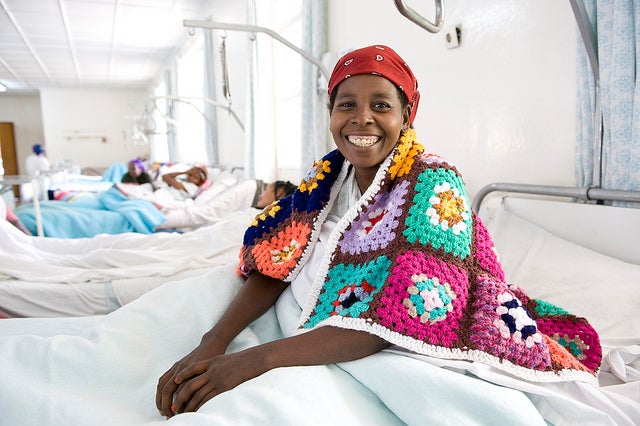In honor of International Day to End Obstetric Fistula, May 23, we’ve compiled resources related to obstetric fistula, a serious and tragic health condition that impacts the lives of women and families around the world. While the global prevalence rate is not known, estimates suggest that obstetric fistula affects around 2 million women primarily in sub-Saharan Africa and South Asia. The devastating effects of fistula include incontinence of urine and/or feces, often accompanied by depression, social isolation, and poverty.
Fortunately, the condition is usually treatable and preventable. The maternal health community can support this year’s theme of ending fistula within a generation by promoting universal access to high quality emergency obstetric care, treatment, and social support.
[youtube https://www.youtube.com/watch?v=OYdUyJGuSWg]
Obstetric Fistula Resources
Double Burden of Tragedy: Stillbirth and Obstetric Fistula
- This commentary, following The Lancet Stillbirth Series in 2011, draws attention to the highly prevalent link between obstetric fistula and stillbirth. According to the meta-analysis of obstetric fistula studies published between 1990 and 2015, 90% of pregnancies in which the women develops obstetric fistula result in stillbirth.
Good Practices on Ending Obstetric Fistula
- Published in 2014, this UNFPA resource shares implementation strategies, progress, and lessons learned from program components and Campaign to End Fistula partner activities. Good Practices describes both challenges and innovations in addressing obstetric fistula.
Maternal Health Thematic Fund 2014 Report
- This report examines the impact of UNFPA in ending fistula through the Campaign to End Fistula, one of the main projects of the Maternal Health Thematic Fund. Launched in 2008, the Maternal Health Thematic Fund manages programs in midwifery and emergency obstetric and newborn care that work to prevent and treat fistula. The 2014 report also identifies challenges in fistula prevention.
New Research to Shorten Recovery Time For Fistula Repair
- This MHTF blog post summarizes findings from Fistula Care Plus Project’s large multi-center randomized controlled trial published in the Lancet, which demonstrated that short duration catheterization is safe and effective following simple fistula repair surgery.
- This exploratory study identifies changes in psychological symptoms following fistula repair surgery, discharge, and reintegration home among women in rural Tanzania. The authors note the importance of equipping women with coping strategies should they experience residual fistula symptoms.
Restoring Hope and Dignity: New Developments and Best Practices in Addressing Maternal Morbidities
- Supported by the MHTF, this Wilson Center event featured a panel presentation of the newest data and best practices from those who work most closely with maternal morbidities like obstetric fistula and pelvic organ prolapse. The speakers discussed root causes of maternal morbidities as well as new approaches and barriers to addressing the global burden of obstetric fistula.
Selected Organizations Working to End Fistula
- Campaign to End Fistula
- Fistula Care Plus Project at EngenderHealth
- Fistula Foundation
- Operation Fistula
Do you have any other resources on obstetric fistula that you’d like to recommend? If so, email us at mhtf@hsph.harvard.edu. We’d love to hear from you!
Join the conversation on ending obstetric fistula within a generation using #FistulaDay.
Photo: “Africa Partnerships Hamlin Fistula 12” © 2009 Department of Foreign Affairs and Trade, used under a Creative Commons Attribution license 2.0

